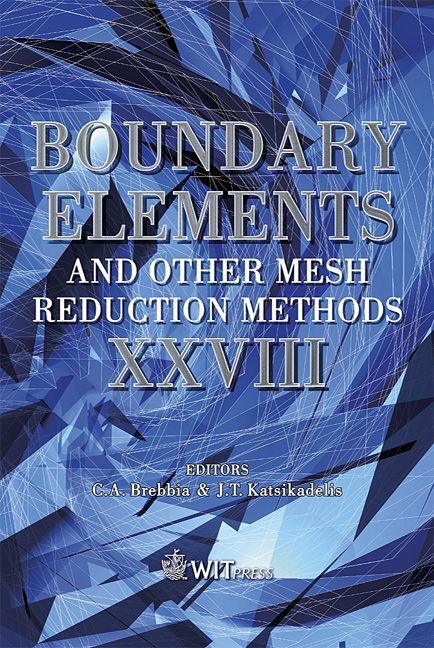Solving Poisson’s Equations By The Discrete Least Square Meshless Method
Price
Free (open access)
Transaction
Volume
42
Pages
10
Published
2006
Size
440 kb
Paper DOI
10.2495/BEM060031
Copyright
WIT Press
Author(s)
H. Arzani & M. H. Afshar
Abstract
A meshless method is proposed in this paper for the solution of two-dimensional elliptic problems. The proposed method does not require any mesh so it is truly a meshless method. The approach termed generically the \“Discrete Least Square meshless method” is applied to discrete the governing differential equations in inner and boundary nodes. A functional is defined as the sum of the squared residual of the governing differential equation and the boundary conditions at the nodal points. Moving least-square (MLS) interpolation is used to construct the shape function’s values, which have high continuity in the problem domain. To evaluate the accuracy of the method as an alternative meshless method the development and theory of this new approach is presented in the context of the solution of 2D elliptic equations. Numerical results show that the method possesses high accuracy with low computational effort. Keywords: meshless method, Discrete Least Square, elliptic problems. 1 Introduction The idea of using finite difference simplicity and finite element capability of handling complex geometries are the subject of many researches. This is mainly because the mesh generation part of the solution has shown to be a very time consuming challenge especially in finite element applications. The idea of developing methods requiring no mesh has led to the emerging of a new class of the so-called ‘meshless’ methods. Many of the meshless methods developed so far require background mesh to carry out numerical integration. The integration cells, however, need not be compatible with nodes and thus they can be generated more easily than the FEM meshes. The existing meshless methods can
Keywords
meshless method, Discrete Least Square, elliptic problems.





